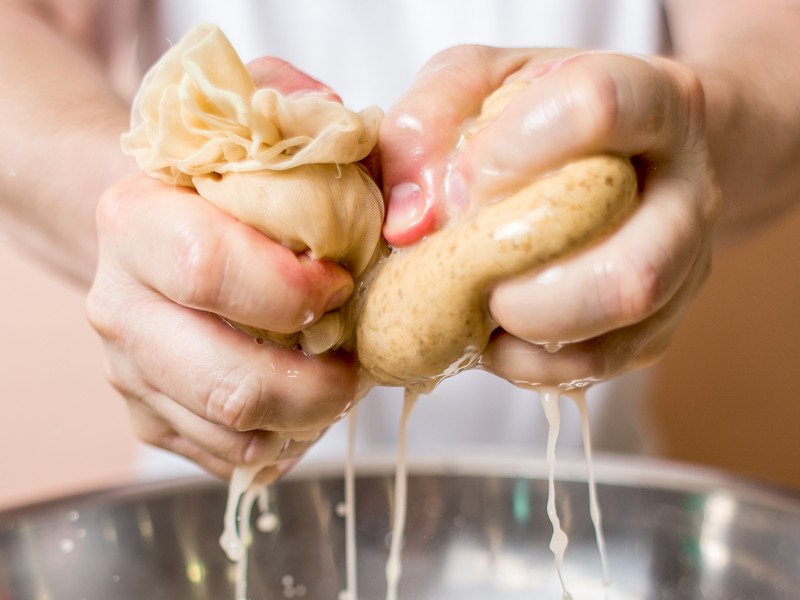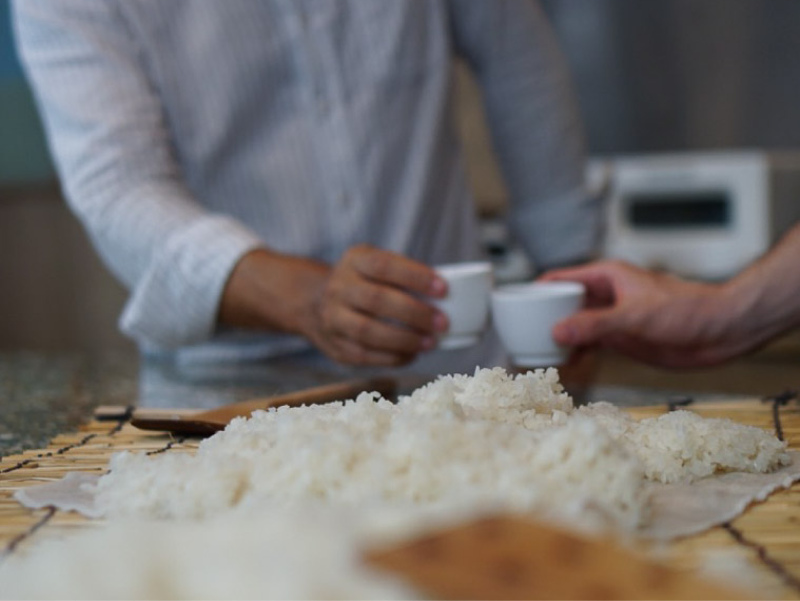The Cultural Heritage Administration of Korea has officially designated Makgeolli-making as a national intangible cultural asset. ‘Makgeolli-making’ does not just constitute the traditional brewing techniques, but also includes the traditional lifestyle of producing and enjoying Makgeolli for different kinds of special occasions, something known to be enjoyed by Koreans since the Three Kingdoms Period (57 BC – 668 AD).

Compared to other Korean liquors that may be only made in certain regions, Makgeolli is valued for its widespread production all over the country. According to the Cultural Heritage Administration, this is what makes Makgeolli-making a culture that is shared by everyone, not owned by any one individual. During the Joseon dynasty, each household had its own special Makgeolli-making methods. Even though those methods have changed somewhat throughout history, Makgeolli maintains its status as a national drink.
“The special technique of Makgeolli-making has been passed down for thousands of years and its actual documents are present, making it especially valuable,” said the spokesman of the Cultural Heritage Administration. The designation of makgeolli making is also the first time that a listing was added as an intangible cultural asset after a call by civic participation. The proposal for makgeolli-making to be added was brought on by a public proposal and content in 2019.
In simplified terms, makgeolli is made by cooking rice, mixing it with water and nuruk, a fermentation starter that contains sacchrogenic enzymes and yeast, and running the mash through a sieve after a few days of fermentation. Makgeolli could be made fairly easily and at a low cost thus the affordability meant more people could enjoy the libation including thirsty farmers. Makgeolli became the drink to soothe the sorrows of ordinary people.

Up until the end of the Joseon Dynasty, makgeolli was a fermented staple which individual households produced meaning there were distinctive tastes passed down through families. Though the production of makgeolli switched to more commercial breweries in the 20th century and adapted to changing times, the popularity of the drink has been maintained. In fact, there has been a surge in popularity since the 2000s and more people are beginning to brew the milky effervescent rice wine at home again.
In the end, makgeolli-making was added as a national intangible heritage for numerous reasons including being supported in historical documents, having been shown to exist on the Korean peninsula for thousands of years, its association with folklore, farmers’ songs, literary works, and exhibiting distinctive local characteristics from the breweries located all around the country. The fact that it is still produced today by local breweries, research organizations, and families was a strong indication of its value to Korean culture in the past and today.
On a personal note, The Sool Company has been teaching makgeolli making classes at Susubori Academy, at breweries, at expos all over Korea and around the world for many years. For us, this designation to recognize the process for making traditional Korean alcohol is an exciting step forward bringing the joys of sool brewing to the world stage.
A ceremony to celebrate Makgeolli-making being designated as an asset will take place on the 26th of July at 5:00pm, on the fields of Hwaseong Haenggung Suwon, complete with brewing experiences. On the 26th and 27th, 26 different breweries will be open for tours across the country.
Stay tuned for more information on celebrations for this momentous occasion for makgeolli brewing!

